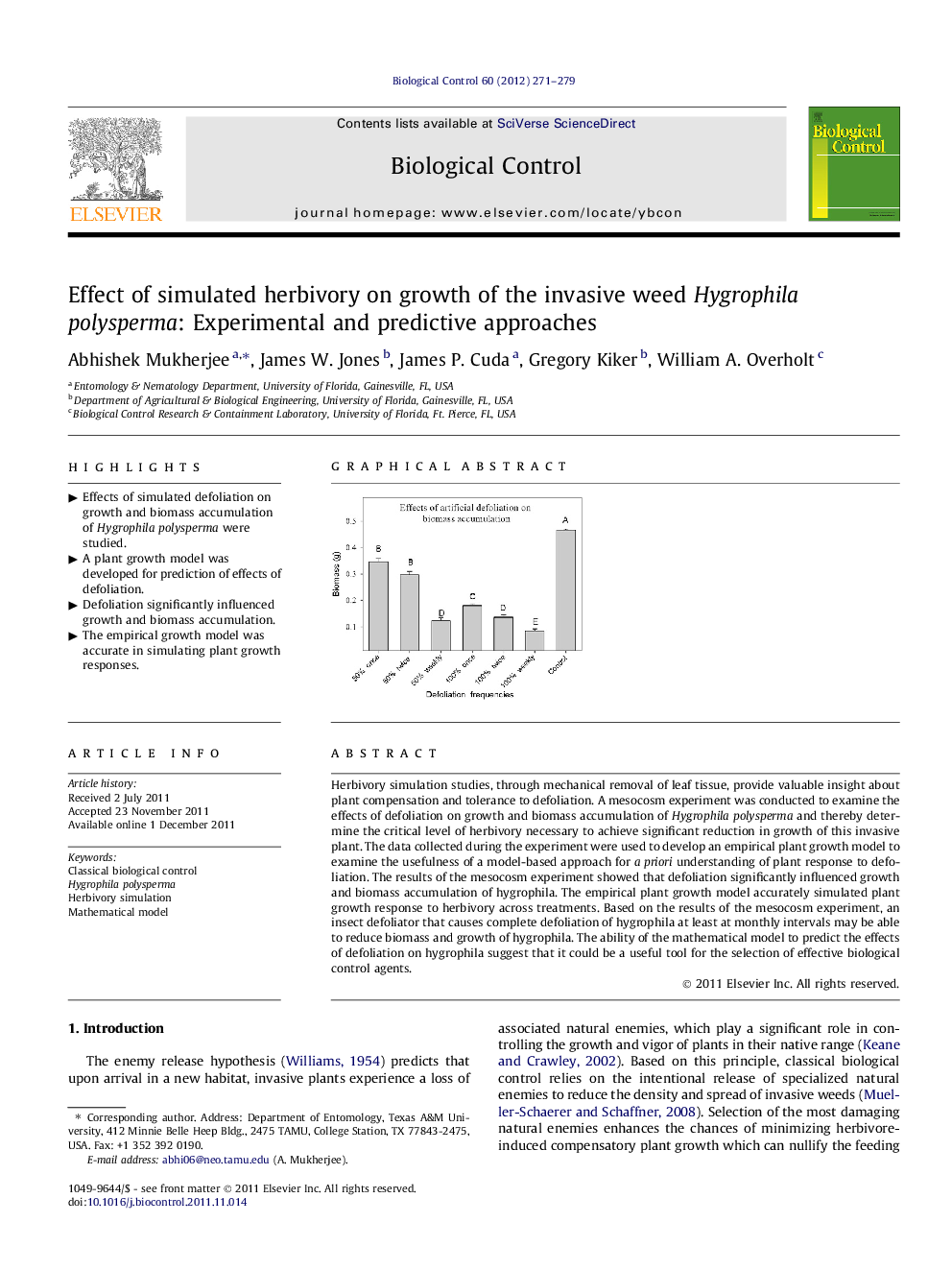| Article ID | Journal | Published Year | Pages | File Type |
|---|---|---|---|---|
| 4504090 | Biological Control | 2012 | 9 Pages |
Herbivory simulation studies, through mechanical removal of leaf tissue, provide valuable insight about plant compensation and tolerance to defoliation. A mesocosm experiment was conducted to examine the effects of defoliation on growth and biomass accumulation of Hygrophila polysperma and thereby determine the critical level of herbivory necessary to achieve significant reduction in growth of this invasive plant. The data collected during the experiment were used to develop an empirical plant growth model to examine the usefulness of a model-based approach for a priori understanding of plant response to defoliation. The results of the mesocosm experiment showed that defoliation significantly influenced growth and biomass accumulation of hygrophila. The empirical plant growth model accurately simulated plant growth response to herbivory across treatments. Based on the results of the mesocosm experiment, an insect defoliator that causes complete defoliation of hygrophila at least at monthly intervals may be able to reduce biomass and growth of hygrophila. The ability of the mathematical model to predict the effects of defoliation on hygrophila suggest that it could be a useful tool for the selection of effective biological control agents.
Graphical abstractFigure optionsDownload full-size imageDownload as PowerPoint slideHighlights► Effects of simulated defoliation on growth and biomass accumulation of Hygrophila polysperma were studied. ► A plant growth model was developed for prediction of effects of defoliation. ► Defoliation significantly influenced growth and biomass accumulation. ► The empirical growth model was accurate in simulating plant growth responses.
